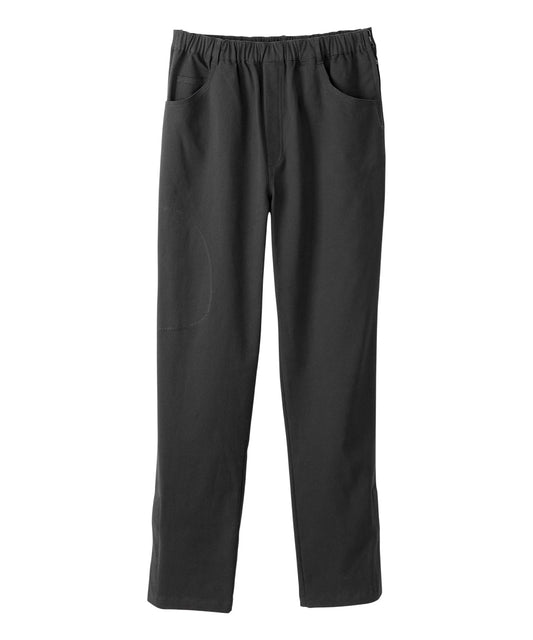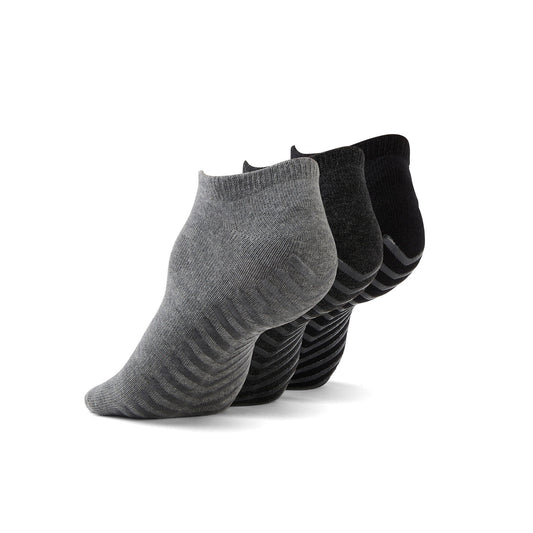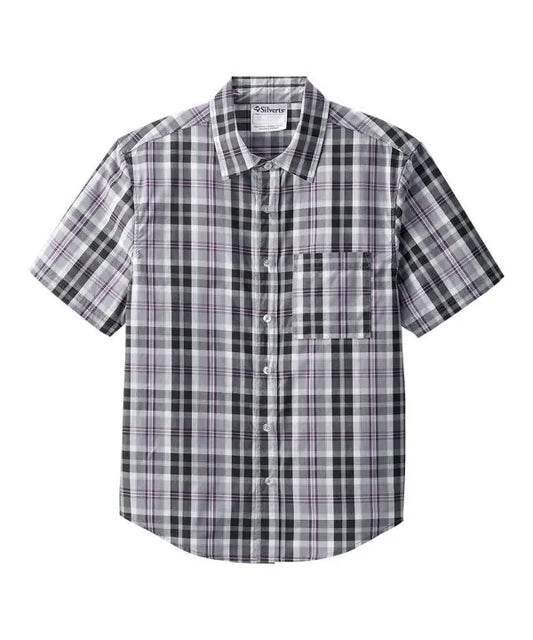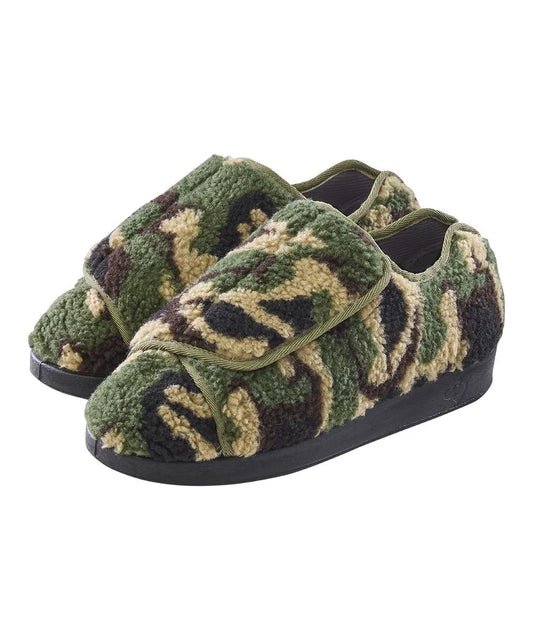Author: Krish Asher
When a loved one moves into a nursing home, it marks a big transition — not just for them, but for everyone who loves them. Even if it’s the best option for their care, it’s normal to feel overwhelmed by guilt, worry, or uncertainty. Questions start to swirl: Are they comfortable? Do they feel forgotten? Did I do the right thing?
This emotional weight is real, but you’re not alone. Families across the U.S. and Canada face this same journey every day. The good news? There are small, meaningful ways to ease the transition, and adaptive clothing can be one of them.
More than just garments, adaptive clothing offers comfort, dignity, and independence to seniors who may be dealing with limited mobility, arthritis, or health complications. And for family members, it becomes a way to support your loved one from the heart, even when you can’t be there every moment.
Let’s walk through the emotional side of this journey — and how thoughtful, comfort-driven clothing can help both you and your loved one feel more secure, connected, and cared for.
Coping with Guilt and Anxiety About Long-Term Care: The Comfort of Adaptive Clothing
Placing a parent, partner, or grandparent into long-term care is never an easy decision. You may feel guilty over no longer being their primary caregiver. You may worry they’ll feel abandoned or uncomfortable. These emotions are common and completely valid.
But here’s something to hold onto: You didn’t choose this out of convenience. You chose it out of care. Ensuring your loved one receives full-time medical support, safe accommodations, and daily social engagement is an act of deep love.
That said, finding small ways to maintain your connection can ease your anxiety and help them feel supported. One simple but powerful gesture is to upgrade their clothing to styles that support their physical and emotional needs.
Seniors in care facilities often face mobility challenges, post-surgery recovery, or arthritis, and traditional clothing can become a daily frustration. Zippers and buttons, stiff fabrics, tight waistbands… These can all make dressing painful or impossible without help.
Gifting them a few pieces of adaptive clothing is more than thoughtful — it’s practical comfort they’ll feel every day.

Try the Women’s Shirt with Magnetic Buttons, for example. With hidden magnetic closures, it makes dressing easier for those with arthritis or tremors — no finger twisting, no caregiver assistance needed. Plus, it looks just like a classic blouse, helping your loved one feel polished and proud.
When you know your parent or grandparent is dressed in something soft, accessible, and dignified, it eases the emotional weight. Because comfort should never be a question.
How to Support a Loved One Who Feels Lonely in a Nursing Home with Thoughtful Adaptive Clothing
Loneliness is one of the most difficult emotions your loved one might face in long-term care. Even with caring staff and other residents, it’s not the same as being surrounded by family. They may feel disconnected or like they've lost part of their independence.
That’s where small acts of love, like thoughtful clothing, become part of your relationship. Sending something made specifically for their needs, with features like open-back closures or gentle stretch, tells them: I see you. I want you to feel good. I’m still with you.
Clothing becomes more than fabric — it becomes a form of care, a way to nurture even from a distance.

The Women’s Recovery Pants with Side Zipper are a perfect example. With half-side zippers, they allow for quick changes while seated or lying down — no need to remove the garment completely. The fabric is soft, breathable, and practical for both summer and winter. These are ideal for individuals recovering from surgery or managing reduced mobility.
By choosing items that simplify dressing and prevent frustration, you help preserve their sense of autonomy. That matters more than you know — especially when someone feels vulnerable in a new environment.
Building a Relationship with the Nursing Home Staff and Discussing Adaptive Clothing Options
While family love is irreplaceable, caregiving in a nursing home is often a team effort. The staff become part of your loved one’s daily life — helping with bathing, meals, and yes, dressing.
That’s why building a positive relationship with nursing home staff can make a meaningful difference in your loved one’s comfort — and in your peace of mind.
It also opens the door to productive conversations about what your loved one needs most.
Not all staff are familiar with adaptive clothing brands or features. Take a few minutes to introduce them to garments that work best for your family member’s specific needs. Let them know what’s easy to put on, what reduces friction during dressing, and what styles your loved one prefers.
If your loved one is non-verbal, has dementia, or prefers routine, consistency matters. Clothing with open-back designs, Velcro closures, or elastic waistbands can prevent discomfort or resistance during morning routines, which helps both the resident and the caregiver.

One great option is the Men’s Collared Nightgown with Back Overlap. This flannel-style nightgown opens in the back for ease of dressing while preserving privacy and warmth. It’s excellent for overnight comfort, medical care access, or seniors who prefer not to wear restrictive sleepwear.
Sharing these kinds of garments with staff — and explaining why they were chosen — turns clothing into a helpful bridge between family and facility. It supports smoother routines, happier mornings, and greater comfort all around.
Finding Support Groups for Family Members and Sharing Adaptive Clothing Solutions
If you’re feeling overwhelmed or isolated in this process, support groups can offer comfort, clarity, and community. Speaking with others who are caring for loved ones in long-term care can help you feel less alone and give you practical tools to navigate the journey.
Whether it’s online forums, local meetups, or caregiver resource centers, these communities are full of people who’ve been where you are. They’ve cried in parking lots after visits. They’ve questioned their decisions. And many of them have discovered small ways — like adaptive clothing — to bring ease into their loved ones’ lives.
Don’t hesitate to share what’s working for you. Mention brands that offer dignified, easy-to-wear clothing. Talk about the difference between magnetic closures and side snaps. Recommend specific pieces that made dressing easier for your parent, spouse, or grandparent.
You’ll likely find others eager to learn — and maybe even share their own favourites. Word-of-mouth support is powerful, especially when it comes to aging with dignity.
At June Adaptive, we love hearing from caregivers and family members because your stories help us design better products, share better advice, and support more seniors with comfort-driven solutions.
How to Talk to Your Loved One About Their New Living Situation and the Importance of Comfortable Adaptive Clothing
Conversations about moving into a nursing home can be emotional, even after the move has happened. Your loved one might still be grieving the change or feeling unsure about what this next chapter means for their independence.
One way to gently open a conversation is through comfort-focused care. Talk about how their daily routines are going. Ask how dressing feels in the morning. Are they comfortable? Do they need help with shoes or buttons? Are their current clothes frustrating?
Rather than focusing on what they can’t do, focus on what can make their life easier and more enjoyable.
Introducing adaptive clothing as a gift of comfort, not a medical necessity, can change the tone of the conversation. It becomes about helping them feel more like themselves, not taking away independence.
For example, you might say:
“I found a shirt that looks just like the one you wore on holidays, but it opens with magnets instead of buttons — way easier on the hands.”
Or:
“I noticed these new pants that are easier to get on while sitting. I thought they might make mornings more relaxing.”
These moments help your loved one feel seen, valued, and respected — especially when their world may feel unfamiliar or limited.
Comfortable clothing won’t solve every challenge, but it’s one more way to say: I love you. I’m thinking of you. And I want you to feel your best.
Final Thoughts: Supporting Their Dignity, Easing Your Worry
Watching someone you love grow older or move into care can stir up a mix of emotions — guilt, grief, uncertainty, and protectiveness. That’s normal. It means you care deeply.
But you don’t have to solve everything all at once. Start small. Focus on comfort. Stay connected. And know that adaptive clothing isn’t just a convenience — it’s a gesture of love, support, and dignity.
Your loved one deserves to dress in ways that feel good, physically and emotionally. And you deserve to feel reassured that you’re doing what you can to help them thrive in this next chapter.
At June Adaptive, we’re here to walk this path with you — one shirt, one pair of pants, one moment of comfort at a time.
Want More Thoughtful Ways to Support a Loved One?
Sign up for the June Adaptive Newsletter to get gentle advice, expert tips, and early access to products designed with care.















